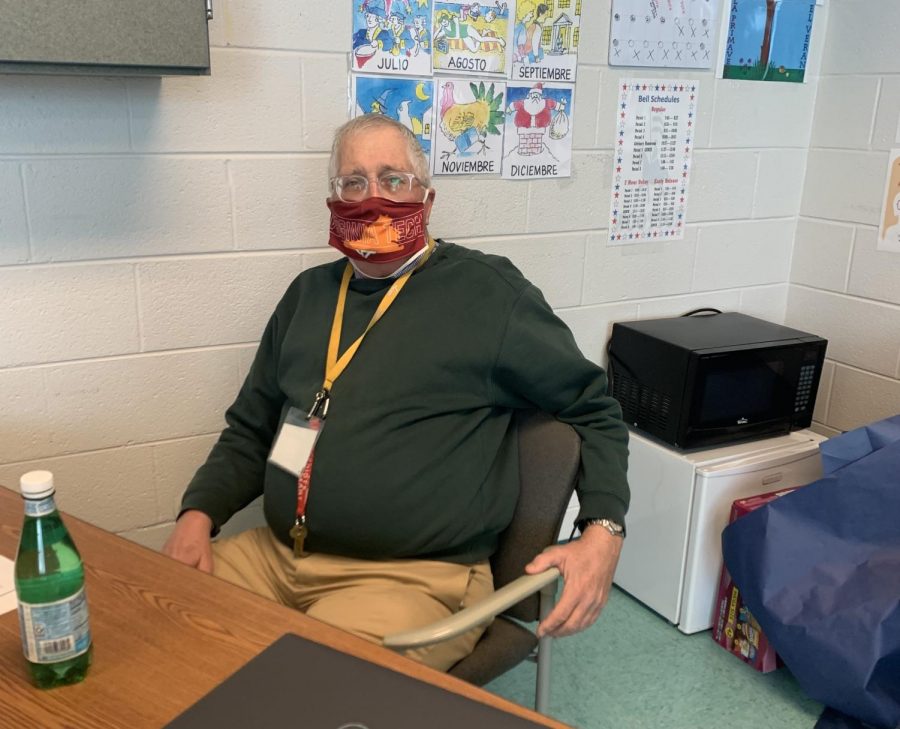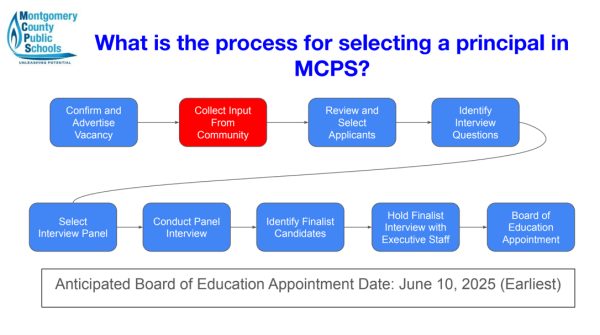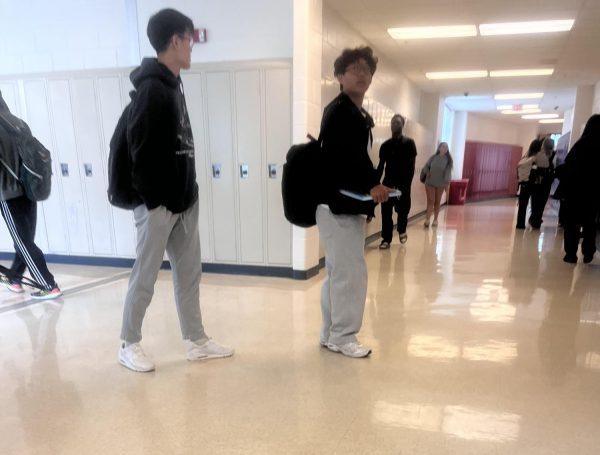Sub shortage, return to school take tolls on mental health of students, teachers alike
Substitute teacher John Bartelloni covers a Spanish 4 class for Tamara Hounshell on Dec. 14.
Both students and teachers have been challenged by the return to school and accompanying increased workload. But teachers must also balance stress from the substitute teacher shortage caused by COVID and catching up on the students’ learning loss.
The stress students feel about catching up on work is mirrored by teachers’ pressure to catch up with students who are out for weeks at a time, whether it be due to COVID, quartentining or other reasons. “I think it’s been really stressful because this year on top of the normal expectations, you’re also expected to manage students who are absent for weeks at a time or take over when we can’t find a sub,” Spanish teacher Tamara Hounshell said.
Because teachers are having trouble finding substitutes, retired teachers are coming back to work to support their former colleagues. Substitutes like Randy Alton are most concerned about the impacts that the virtual year and COVID have had on students. “It’s affected me because I’m concerned about the impact on the students. [Mrs. Alton and I] don’t need to come in because we’re retired, but we want to come in,” Alton said.
At the beginning of the school year, teachers were expected to cover for teachers in their departments when substitutes were not available, which was challenging for smaller departments. New substitute teachers have since been hired but it remains difficult for teachers to find coverage for their classes. “Before they hired the new subs, there was one week where I subbed seven days in a row for another teacher and it was very stressful,” Hounshell said.
The policy has changed so teachers are no longer expected to cover for their department, and instead just cover for any teacher when their schedule permits, to ease the burden on small departments. “Now they are doing it where you tag-team, so I had to sub for [theater teacher] Dr. Lazarus… so they did adjust it where one department is not super stressed out, especially for small ones like us. For me, I prefer that,” Hounshell said.
Despite these challenges, the return to school will only get easier over time as teachers and students adapt. “I like the forward thinking that kids do. If there’s anything positive coming out is how resilient, truly, kids are and that this is a moment we’re never going to forget. You guys deserve a lot of credit,” Alton said.
This year is the first year that students have the option to take unlimited mental health days, but teachers are unaware if the same option extends to them. “I know that the county [gave] us a few half days to help with the plans. In terms of mental health, I still think it’s the same where you get three personal days a year and then they roll over,” Hounshell said.
It is important to step away from work and school when it is overwhelming. Senior and officer of Students Against Destructive Decisions club, Lizzy Jack, suggests taking a shower, watching a movie, or taking a nap. “While the return to school and work is important, our mental health is equally if not more important. For those who feel stressed out in their return, it is good to remember to practice breathing exercises and meditation, which has been found to be especially helpful,” Jack said.
Your donation will support the student journalists of Thomas S. Wootton High School. Your contribution will allow us to purchase equipment and cover our annual website hosting costs.
Ellie Cowen is a 2022 graduate.







